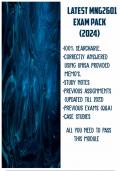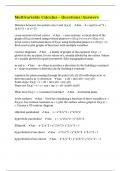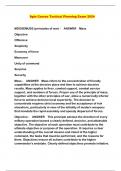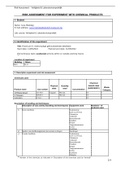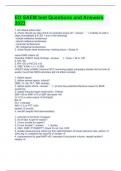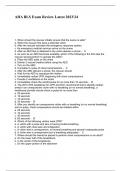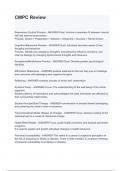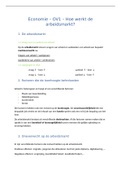Exam (elaborations)
MNG2601-All-in-One Exam Pack [2024]
- Institution
- University Of South Africa (Unisa)
This document summarises the prescribed book - Contemporary Management Principles by Tersia Botha (4th Edition) as well as exam questions and answers from previous exams/assignments. Answers were researched using the prescribed book and memos. This document will help you in your exams, assignments,...
[Show more]
